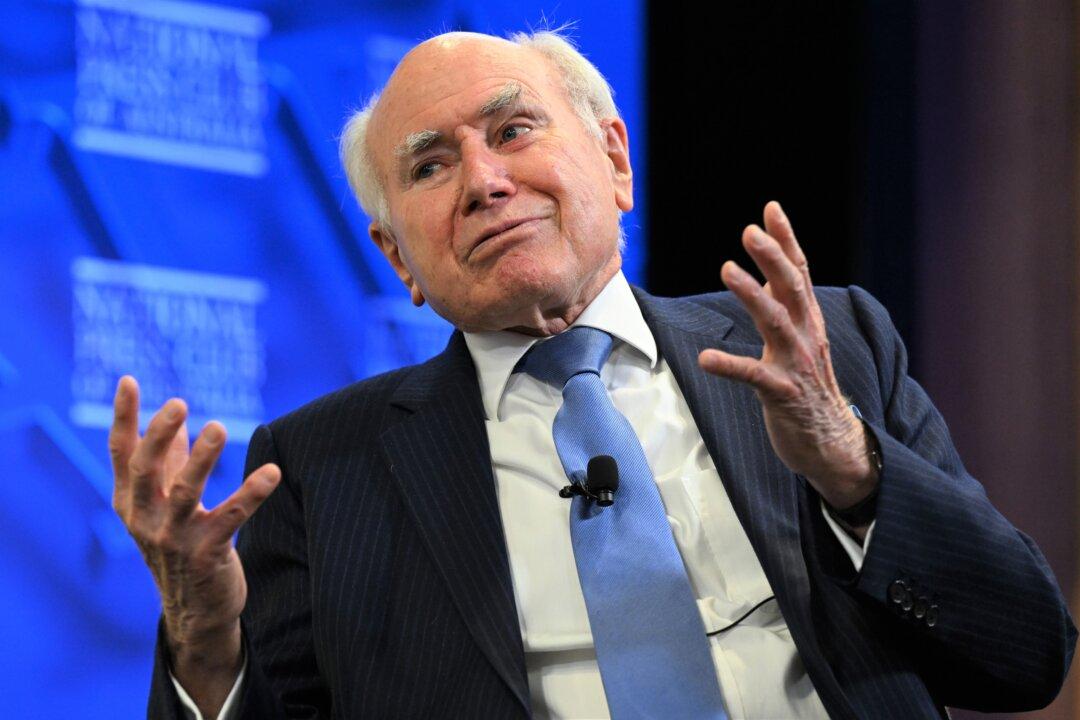Commentary
The season’s finale of “The ABC Of” program, televised on Aug. 2, featured an interview with former Australian Prime Minister John Howard. Conducted by actor David Wenham, it enabled Howard to reflect on his remarkable career as a politician. Howard served in office from 1996 to 2007 making him the most successful prime minister in the last 50 years and the second longest in Australian history, after Robert Menzies.





